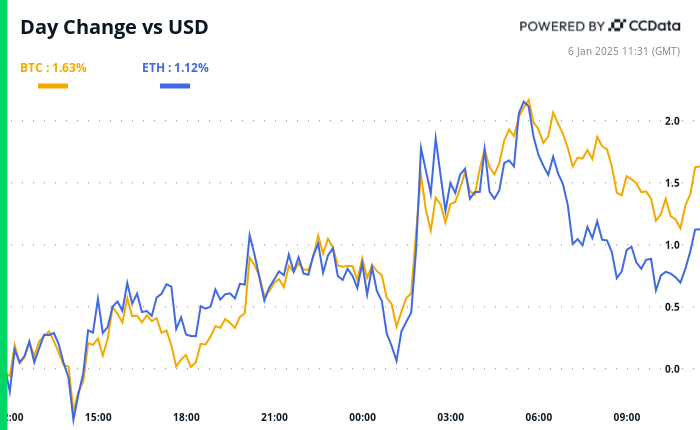AI Sentiment: Cautiously Bullish
Reason: Despite ongoing regulatory issues with the SEC, the crypto industry continues to grow, with increased adoption and interest from mainstream firms. Grayscale and Ripple's battles with the SEC could potentially lead to game-changing outcomes for the industry.
The overture to 2025 in the world of cryptocurrencies in America seems to strike a familiar chord. There is a continuation of the 2024 storyline with the U.S. Securities and Exchange Commission (SEC) still being at odds with the cryptocurrency industry, especially over the issue of exchange-traded funds (ETFs).
Despite the SEC's tough stance, the cryptocurrency sector has been experiencing growth, with more mainstream firms and financial institutions taking an interest. The crypto market has also been buoyed by the increased adoption of digital assets by consumers and businesses alike. However, regulation remains a significant hurdle, limiting the potential of this burgeoning industry.
The SEC has been delaying the approval of the first US Bitcoin ETF for several years. It has voiced concerns about market manipulation, custody, and liquidity. The agency has rejected multiple proposals, leaving the U.S. market without a Bitcoin ETF, while other countries such as Canada have managed to successfully launch their own.
Nonetheless, this hasn't stopped firms from trying to get their ETFs approved. Grayscale, a digital asset management company, has been leading the charge. The firm has been in a protracted battle with the SEC to convert its Bitcoin Trust (GBTC) into an ETF. If successful, this could be a game-changer for the industry, creating a new avenue for retail and institutional investors to gain exposure to Bitcoin.
The story of Ripple and its native cryptocurrency, XRP, is another example of the ongoing regulatory battles. Ripple has been locked in a legal battle with the SEC since 2020 over the classification of XRP as a security. The outcome of this case could set a precedent for how other cryptocurrencies are classified and regulated in the future.
Despite these challenges, the cryptocurrency industry remains resilient. Innovations such as decentralized finance (DeFi) and non-fungible tokens (NFTs) have opened up new possibilities, attracting more people to the crypto space. The overture to 2025 might be striking a familiar chord, but it also holds the promise of a future where digital assets play a pivotal role in the global economy.




